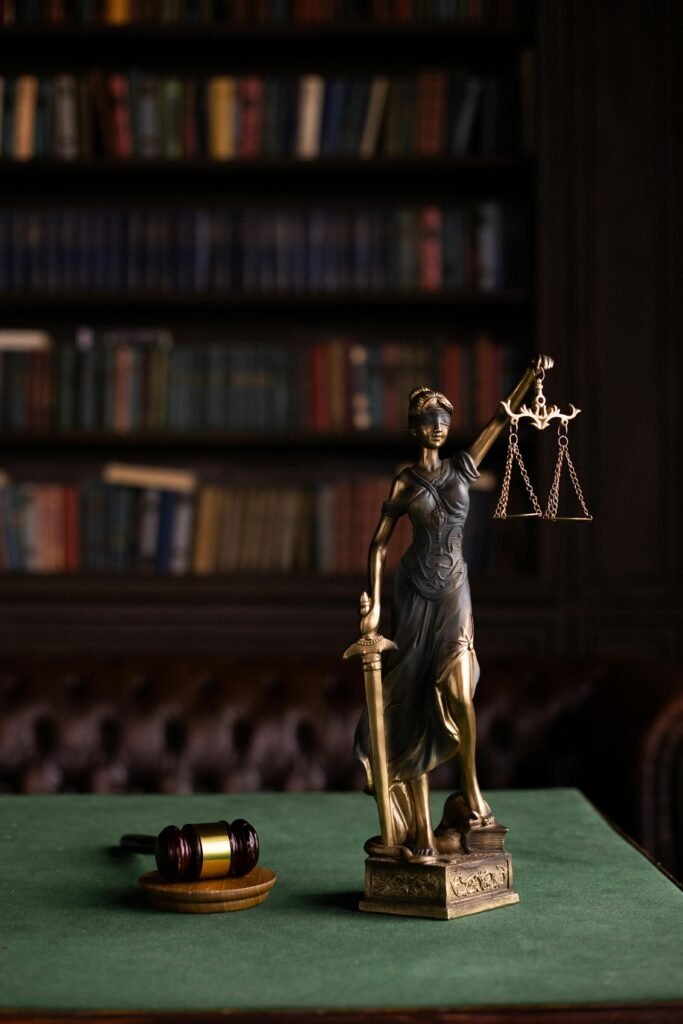ADM Jabalpur vs Shivkant Shukla (1976)
Introduction
The case of ADM Jabalpur vs Shivkant Shukla (1976) , commonly referred to as the “Habeas Corpus Case,” stands as a significant and controversial moment in India’s legal history. Decided during the Emergency period of 1975-1977, this case tested the resilience of India’s democratic institutions and the judiciary’s role in safeguarding fundamental rights.

Background of ADM Jabalpur vs Shivkant Shukla Case
In June 1975, the Allahabad High Court found Prime Minister Indira Gandhi guilty of electoral malpractices, invalidating her election. In response, Gandhi declared a state of Emergency across India on June 25, 1975, citing internal disturbances. This proclamation led to the suspension of fundamental rights, including the right to life and personal liberty under Article 21 of the Constitution.
During the Emergency, numerous political opponents, activists, and dissenters were detained without trial under laws like the Maintenance of Internal Security Act (MISA). Many detainees filed petitions for habeas corpus, challenging their unlawful detention. While several High Courts ruled in favor of the detainees, the government appealed these decisions, culminating in the Supreme Court case ADM Jabalpur vs Shivkant Shukla (1976).
Legal Issues
The primary legal question was whether, during the Emergency, a person had the right to approach the High Court for a writ of habeas corpus when fundamental rights were suspended. Specifically, the case examined:
- Suspension of Fundamental Rights: Did the Presidential Order under Article 359(1) suspend the right to seek enforcement of fundamental rights during the Emergency?
- Judicial Review: Could the judiciary review the legality of detentions under MISA during the suspension of Article 21?
- Existence of Natural Rights: Did citizens retain any inherent rights to life and personal liberty beyond those explicitly provided in the Constitution?
Arguments
For the Petitioners (Detainees):
- Inherent Rights: Even if Article 21 was suspended, the right to life and personal liberty was inherent and inalienable.
- Judicial Oversight: The courts retained the authority to review detentions to ensure they were not mala fide or beyond the scope of the law.
- Rule of Law: The suspension of fundamental rights did not equate to the suspension of the rule of law; arbitrary detentions without legal basis were still challengeable.
For the Respondents (Government):
- Absolute Suspension: The Presidential Order effectively suspended the right to approach courts for enforcement of fundamental rights, including habeas corpus petitions.
- Limited Judicial Role: During the Emergency, the judiciary had no jurisdiction to question executive actions related to detentions under MISA.
- Constitutional Provisions: The suspension of Article 21 meant that detainees had no locus standi to challenge their detention.
Judgment
On April 28, 1976, the Supreme Court delivered a 4-1 majority judgment favoring the government’s stance. The majority held that during the Emergency, when a Presidential Order suspending the right to enforce fundamental rights was in effect, no person could move any court for the enforcement of such rights. Consequently, habeas corpus petitions were not maintainable during this period.
The majority opinion, delivered by Chief Justice A.N. Ray, Justices M.H. Beg, Y.V. Chandrachud, and P.N. Bhagwati, emphasized that the suspension of Article 21 meant that individuals had no locus standi to challenge their detention, even if the detention was illegal or without authority.
Dissenting Opinion
Justice H.R. Khanna delivered a powerful dissent, asserting that the Constitution did not permit the executive to deprive a person of their life or liberty without the authority of law, even during an Emergency. He argued that the rule of law was the antithesis of arbitrariness and that no executive order could override the fundamental principles of natural justice. Justice Khanna’s dissent is often hailed as a courageous stand for individual rights and judicial independence.
Impact and Critique
The ADM Jabalpur vs Shivkant Shukla (1976) judgment faced widespread criticism for its perceived abdication of judicial responsibility and failure to protect individual liberties. It is often cited as a low point in Indian judicial history, reflecting the judiciary’s capitulation to executive overreach.
The case had profound implications, leading to a re-evaluation of the judiciary’s role in safeguarding fundamental rights. In the post-Emergency period, the 44th Amendment to the Constitution was enacted, ensuring that certain rights, including the right to life and personal liberty, could not be suspended even during an Emergency.
Related Cases and Overruling
The ADM Jabalpur vs Shivkant Shukla (1976) decision was effectively overruled in subsequent judgments, most notably in the case of K.S. Puttaswamy v. Union of India (2017), where the Supreme Court recognized the right to privacy as an intrinsic part of the right to life and personal liberty under Article 21. The Court explicitly stated that the ADM Jabalpur judgment was erroneous and violated fundamental rights.
Conclusion
ADM Jabalpur vs Shivkant Shukla (1976) serves as a stark reminder of the judiciary’s crucial role in upholding constitutional freedoms. The case underscores the importance of judicial independence and the need for constant vigilance to protect individual rights against potential governmental overreach.
Read More Judgment case Summary : A.K. Gopalan v. State of Madras (1950)
Visit Our Youtube Channel






